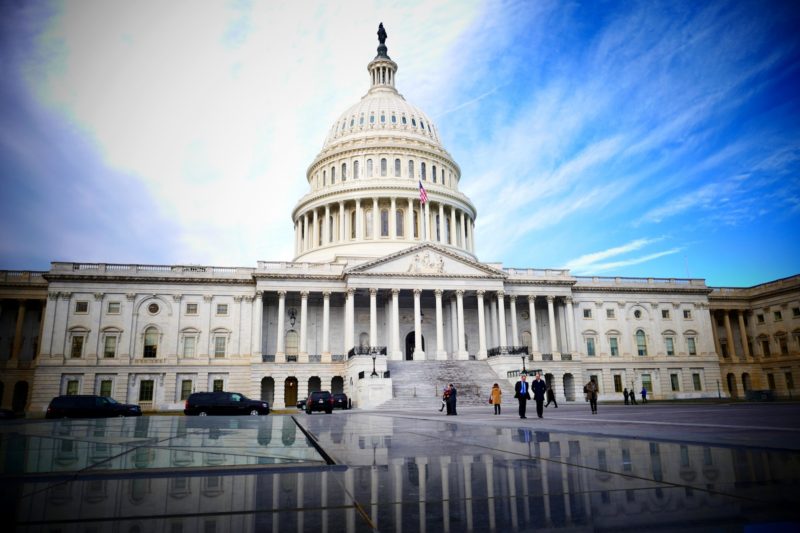By Michael G. McGuinness

As of this writing, the outgoing Republican-led Congress is trying to finish some business before the end of the year. Foremost is the need to pass appropriations for the departments of Treasury, Commerce, Justice, Agriculture, State, the Interior, Transportation and Housing and Urban Development before Christmas. President Donald Trump has pledged to demand funding for a border wall, which could threaten budget negotiations.
Lawmakers will also work on technical corrections to last year’s tax bill. NAIOP is working with a coalition to encourage this Congress to fix a mistake it made regarding Qualified Improvement Property, or QIP. This is also called the “retail glitch.” Lawmakers intended to allow property owners to write off the cost of improvements over 15 years. But because of a typo in the tax law, current policy requires them to write improvements off over 39 years. Fixing the QIP mistake would require passing a new law, and that would require bipartisan support in the Senate. The House has taken the first step, introducing a sweeping bill in late November that would fix QIP and renew other expiring provisions. Negotiations between the House and Senate will determine which provisions might be included as part of the must-pass appropriations bill.
The newly elected Congress returns in January with Republicans enjoying a slightly expanded majority in the Senate and Democrats taking charge of the House of Representatives for the first time since 2010. The tax-writing committee in the House will now be run by Rep. Richie Neal, a moderate, pragmatic Democrat from Massachusetts. Among other things, he may try to address some errors and inconsistencies in the 2017 tax reform act. For the commercial real estate industry, the picture remains bright as the 2017 tax reform was a big win. Lawmakers created Opportunity Zones, delivered lower tax rates and protected some provisions that are crucial to CRE. These include real property like-kind exchanges, interest expense deductibility and a three-year holding period for carried interest. NAIOP will be working to protect those provisions in the years ahead.
Another priority in the new Congress is expected to be infrastructure. Rep. Peter DeFazio (D-OR) will chair the House Transportation and Infrastructure Committee. He has complained that the Trump administration didn’t provide dedicated revenue for its infrastructure proposals and is suggesting spending some $500 billion on projects nationwide. That money could come from an increase in the federal gas tax, a carbon tax or the issuance of bonds. Rep. DeFazio also favors the use of public private partnerships, or P3s, to encourage private-sector investments and increase the size and scope of projects.
No infrastructure project is more critical to New Jersey and the Northeast Corridor than Gateway, which would create a new tunnel under the Hudson River and repair the existing tunnel. While New Jersey suffered a loss with the retirement of Rep. Rodney Frelinghuysen (who chaired the Appropriations Committee that secured initial Gateway funding), we may benefit from other members of Congress in key roles, including the new Appropriations Chair, Rep. Nita Lowey from New York. New Jersey Rep. William Pascrell, a senior member on the House Ways and Means Committee, will also be able to help prioritize Gateway, especially if a revenue raiser is part of the funding methodology. Other key players could be Rep. Frank Pallone, who will chair the Energy and Commerce Committee; House Majority Leader Steney Hoyer of Maryland and New York Sen. Chuck Schumer, the Democratic leader in the Senate.
The Environmental Protection Agency’s Energy Star program also remains of interest to the CRE industry, particularly in the wake of a recent update of its scoring models. The EPA made the changes to account for the latest building consumption data, but there have been numerous reports of disparate effects on properties in different climates, which the scoring models are supposed to consider. The EPA has temporarily suspended new Energy Star building certifications as it conducts a review of these changes. Overall, NAIOP supports the program, but will work to ensure that any updates do not negatively impact the industry over the next two years leading up to the 2020 presidential election.
I believe that the shift of power in the House to a Democratic majority has opened some opportunities for those of us in New Jersey: At least we’ll get to do some “horse-trading” and get some business done.
Note: Portions of this article were taken from the Nov. 28, 2018, blog post by Richard Tucker, NAIOP director for public policy communications, http://blog.naiop.org/2018/11/washington-begins-preparing-for-divided-government-in-2019/
Michael McGuinness is CEO of NAIOP New Jersey and has led the commercial real estate development association since 1997. NAIOP represents developers, owners, asset managers and investors of commercial, industrial and mixed-use properties, with 830 members in New Jersey and over 19,000 members throughout North America.










